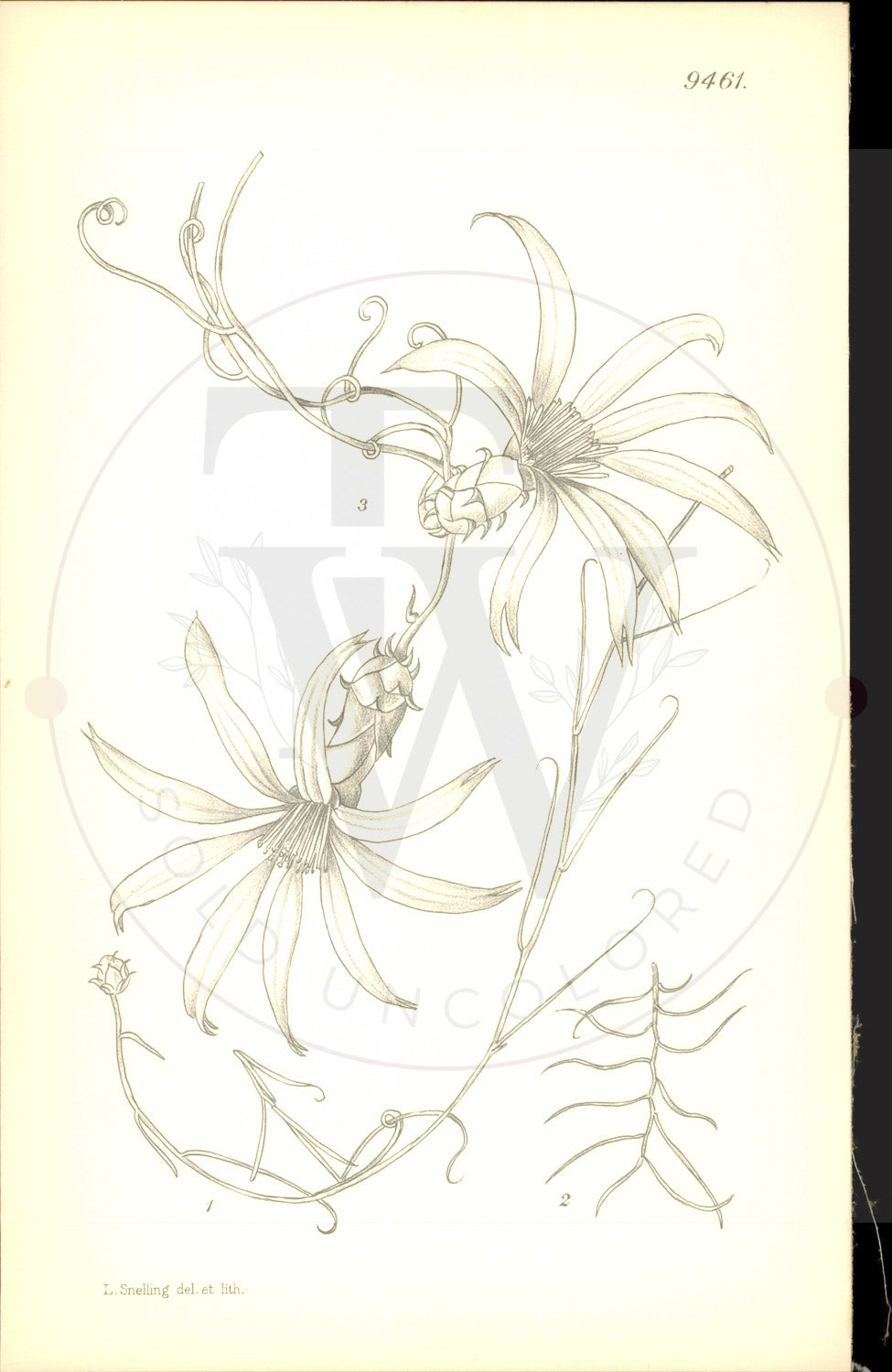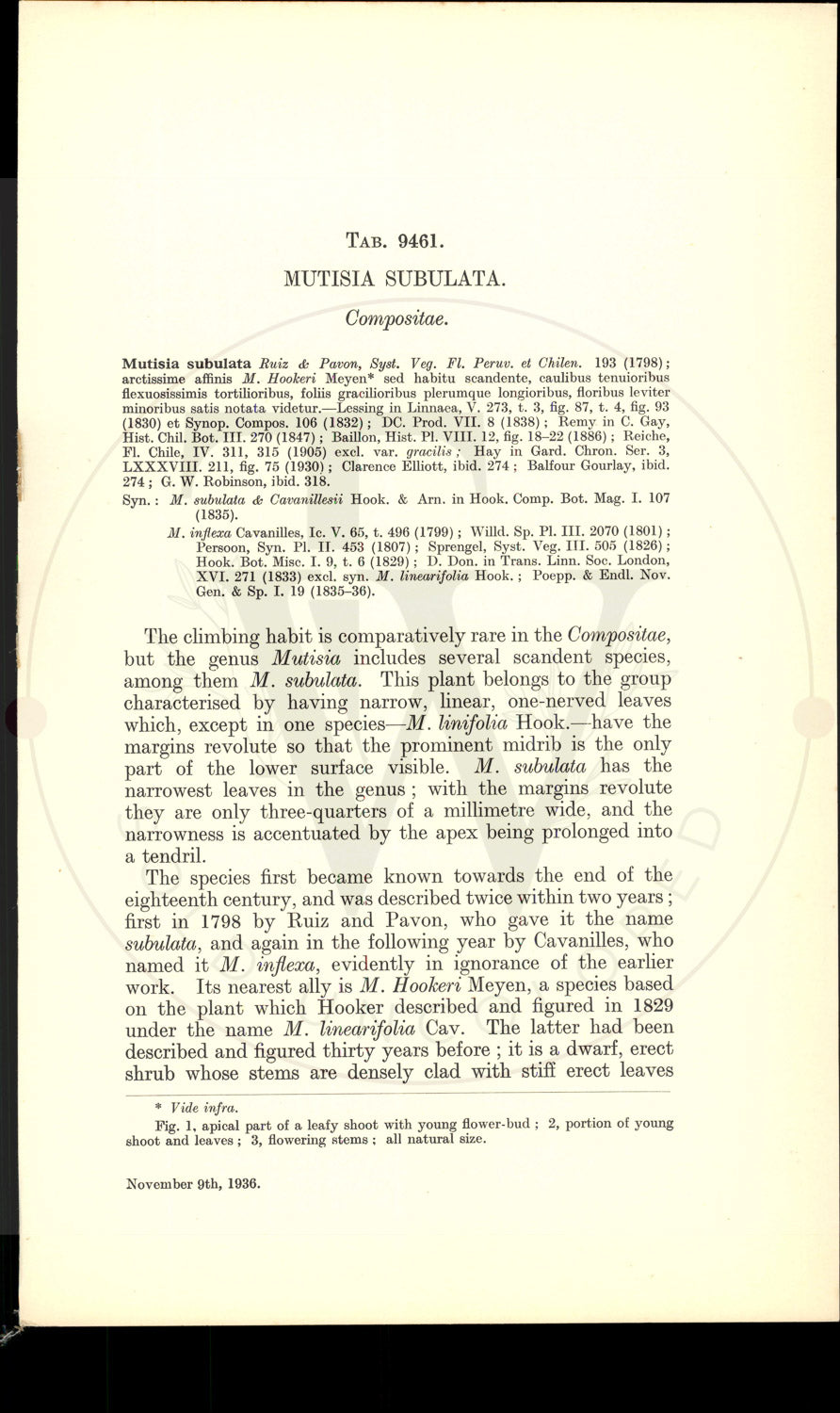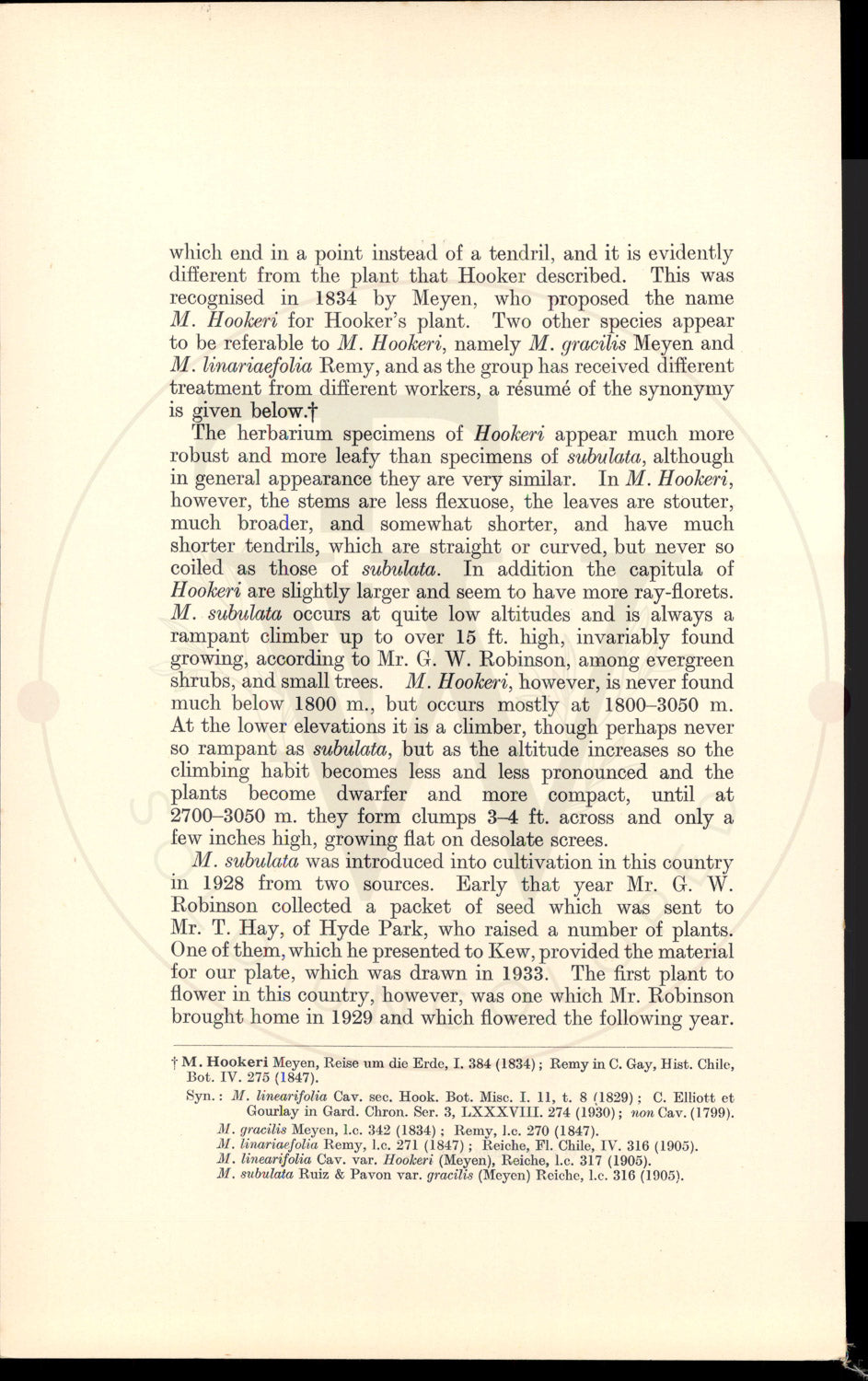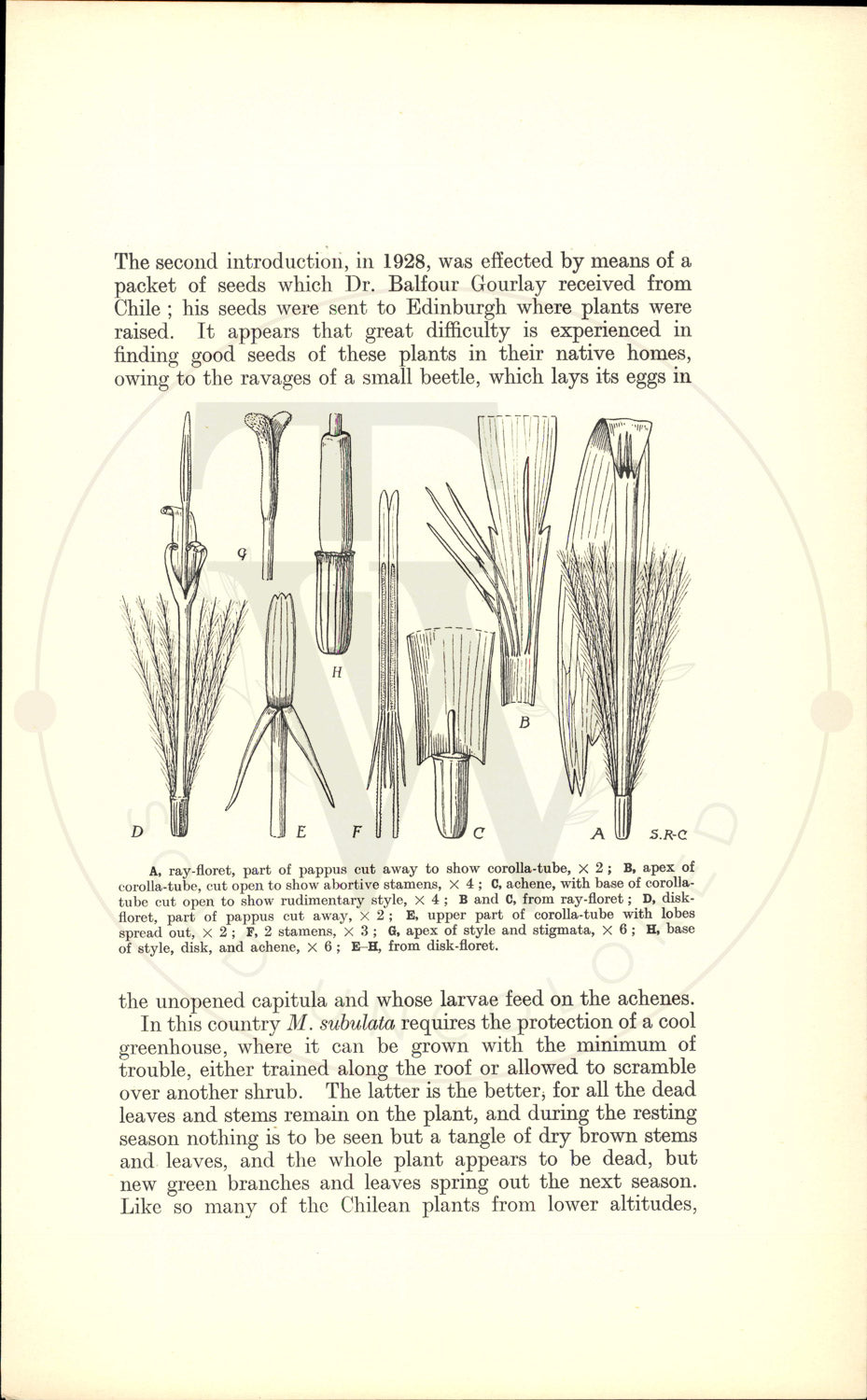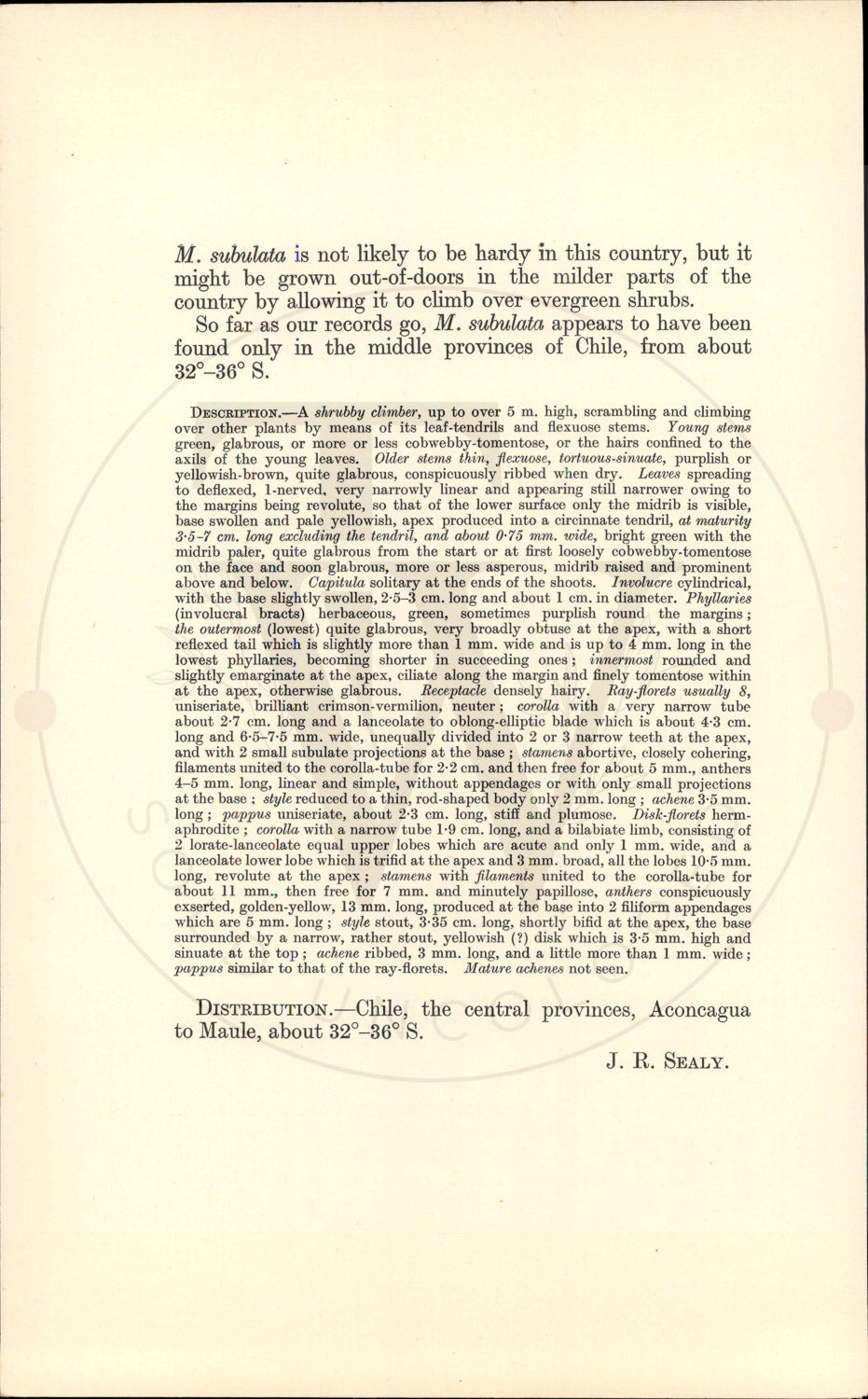Curtis Botanical Magazine
Plate 9461 - Mutisia subulata
Plate 9461 - Mutisia subulata
Couldn't load pickup availability
Curtis's Botanical Magazine - Plate 9461
Mutisia subulata
Native Region: Chile • Publication Date: January 1st, 1934
Distribution: -Chile, the central provinces, Aconcagua • Tab Author: J. R. SEALY
Botanical Description
Among them M. subulata. This plant belongs to the group characterised by having narrow, linear, one-nerved leaves which, except in one species-M. linifolia Hook.-have the margins revolute so that the prominent midrib is the only part of the lower surface visible. visible. M. subulata M. subulata has the narrowest leaves in the genus; with the margins revolute they are only three-quarters of a millimetre wide, and the narrowness is accentuated by the apex being prolonged into a tendril. The species first became known towards the end of the eighteenth century, and was described twice within two years; first in 1798 by Ruiz and Pavon, who gave it the name subulata, and again in the following year by Cavanilles, who named it M. inflexa, evidently in ignorance of the earlier work. Its nearest ally is M. Hookeri Meyen, a species based on the plant which Hooker described and figured in 1829 under the name M. linearifolia Cav. The latter had been described and figured thirty years before; it is a dwarf, erect shrub whose stems are densely clad with stiff erect leaves * Vide infra.
Synonyms
M. subulata & Cavanillesii Hook. & Arn. in Hook. Comp. Bot. Mag. I. 107
(1835).
M. inflexa Cavanilles
Pl. II. 453 (1807)
M. linearifolia Hook.
: M. linearifolia Cav. sec. Hook. Bot. Misc. I. 11
About This Print
Original black and white uncolored botanical print from Curtis's Botanical Magazine (established 1787). This 9000s series print is from unissued publisher stock, never hand-colored, representing the authentic plate as it appeared in the magazine. Edited by Sir Arthur William Hill for The Royal Horticultural Society, London.
Share
